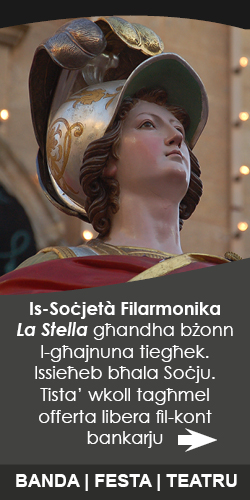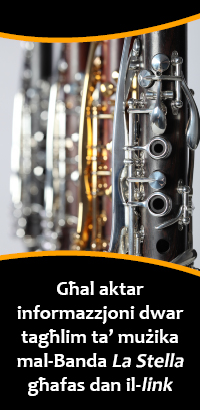UNEASY LIES THE HEAD THAT WEARS THE CROWN
review by Kenneth Zammit Tabona [timesofmalta.com – November 3, 2007]
“Uneasy lies the head that wears the crown” is a quote from Henry IV part II; yet another Shakespeare play in which the story of the King in question ends none too happily. It is what always comes to mind after reading or seeing the Bard’s wonderfully gloomy and brooding play, Macbeth, widely known as the Scottish play for reasons that sound surprisingly Neapolitan. Sadly Giuseppe Verdi adapted only three Shakespeare plays as operas. Considering how eminently successful they were, and still are, his plans to do King Lear for instance, or Hamlet, after listening to the splendiferous music of Otello, Macbeth and Falstaff, present mind-boggling possibilities. Reams and reams have been written about these three operas, the original plots of which Verdi and his librettist, Piave for Macbeth and Boito for Falstaff and Otello, followed so closely; their great and powerful prose, steeped in deep-rooted passion is further enhanced by what are possibly Verdi’s most profound, inventive and earth-shattering musical utterances. The music is tight, rhythmic and thematically rich and inventive and the beginnings of leitmotiv are beginning to show.
It has been 10 years since the Astra Theatre put on Verdi’s Macbeth. I then remember hearing about a very young tenor named Joseph Calleja who I was told was a protégé of Paul Asciak’s and who was going to sing for the first time in the small but difficult role of Macduff with that lovely and emotional aria at the beginning of Act IV. I remember being thrilled to bits as this young man with bells in his voice sang O figli, O figli miei… A voice that sent shivers of pleasure which I believe are called frissons down my spine way back in 1997 all the more for being a totally unexpected surprise. Ten years on and Mr Calleja has become an international household name and here he was again, singing that same small but infinitely important role after being on the constant rise to world stardom for the past decade. His performance was just as splendid and exciting as when I heard it for the first time.
The character of Macduff is the antithesis of Macbeth’s. He is not prey to ambition and emerges as the chevalier sans peur et sans reproche, a sort of Parsifal who because of his unusual birth is able to break the charm of the witches that no man of a woman born could harm Macbeth. In the operatic version the character only emerges in the final act as a liberator in a fast action drama which eschews the more cerebral aspects of the original prose. This is why I find the libretto of Otello to be far more superior. Be that as it may the Astra Theatre production was, apart from a couple of stylistic blips, most satisfying and enjoyable.
Joseph Vella’s conducting was for the most part rumbustuous and strong. The orchestral colours, dark and tragic, were brought out in a show of rhythmic strength that in the ensembles were literally mind-blowing. It was providential that the soloists were all so well endowed with superhuman lung and vocal power as they rose, loud and clear over full orchestral forces augmented by full choral ones singing fortissimo with seven ‘f’s’!
Francesca Patane’s Lady Macbeth was unforgettable. Her voice, which by common consent reminded us uncannily of the late lamented Maria Callas, was emotionally charged, expressive and infinitely appropriate to the role. She is pivotal to the action of the play and opera; the only female who is even more of a villain than her husband in whom, till the very last act, some humanity and plenty of remorse still remains. Marco Chingari made an utterly splendid Macbeth, physically and vocally. He was in a way almost too noble and dignified a presence to be the convincing vacillating villain that is Macbeth. The vocal duo, Patane and Chingari, were amazing in their sparring and presented a deep rapport that at times was like intimate musical lovemaking.
Mario Corradi gave us a production which was neither fish nor fowl; as equivocal as Macbeth itself. It was too conventional to be modern and avante garde while dipping into modernism and avante-garde-ism for brief instances which rendered the production neither one thing nor another. Things like the voice-over reading the famous Macbeth letter in Act I, the strange flapping disc going up and down like the lid of Popeye’s tin of spinach and the video footage of a World War II air battle as Birnam Wood crept towards Dunsinane were rather like what a great learned gentleman whom I knew very well called tewm fuq suffle. We could well have done without them. As for the slit in Lady M’s dress… say no more! The rest I must say was magnificent. The banquet scene where everyone wore red was visually riveting. The shades of red under the blazing lights presented a scene of great splendour. It was meant to be the apogee of the rise of the Macbeths to power. Once the Ghost of Banquo appeared, the red of celebration and triumph turned into the red of bloody murder, turning the whole play upside down into the stuff that nightmares are made of.
I also loved the witches’ scenes visually but was always hoping that something more inventive could have been found for the ladies to do rather than wave their arms like sea anemones in the current. I loved the stylised grouping as I approved wholeheartedly of the homogenisation of colour; shades of blue, shades of red, shades of ochre that highlighted the mood of each scene most effectively. The choral singing of which there was plenty culminating in the notoriously difficult and expressive Patria oppressa! in Act IV was always top hole, an operatic asset that only this theatre and its ubiquitous choir mistress can produce.
Well done to the Astra Theatre and its hard-working committee which for so many years has regaled us with so many operas that we would not have been able to stage in Malta unless it was an open-air performance. Who knows what is next? A Don Carlo? A Falstaff? One day I am sure that we will have Wagner’s Ring at Ggantija. Quo non ascendet?
photos: Joe Attard



